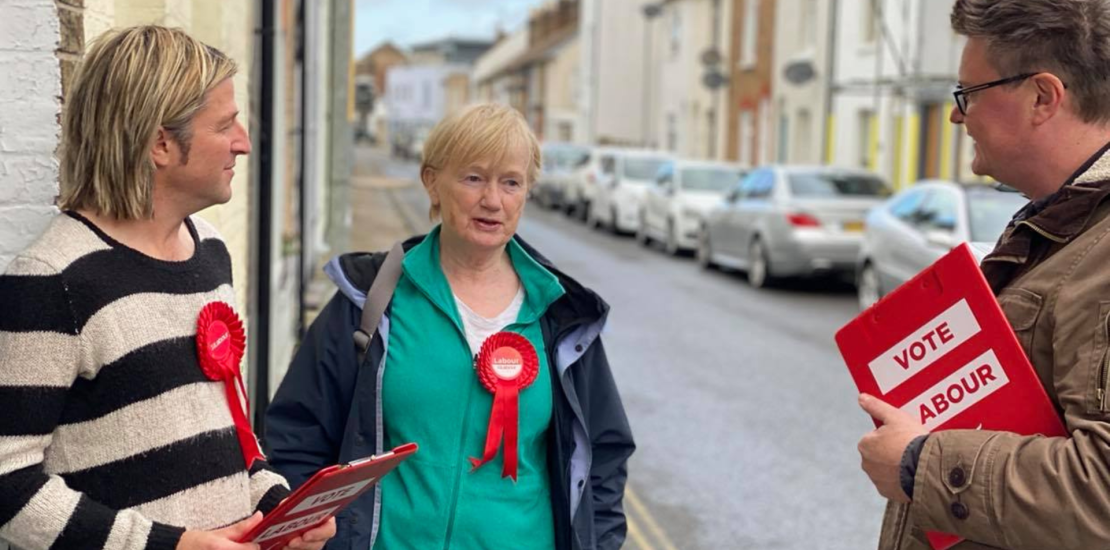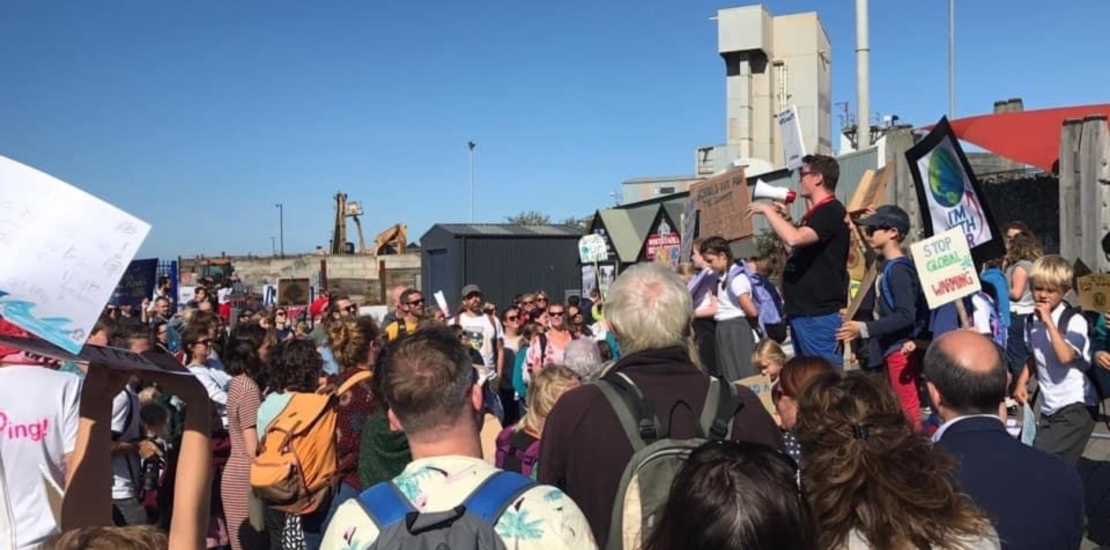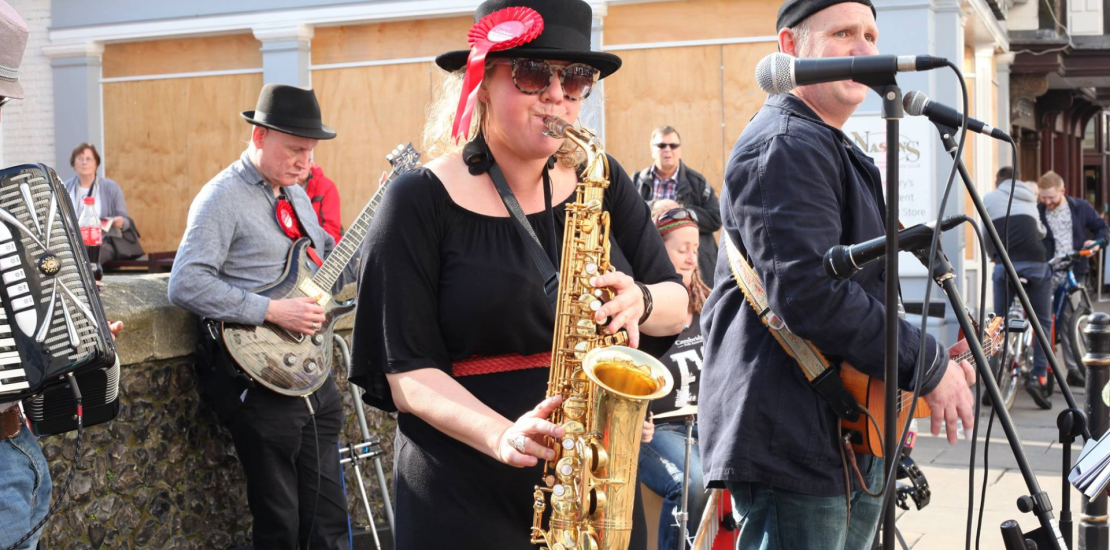FREQUENTLY ASKED QUESTIONS
Common questions asked of councillors with handy answers
PLANNING APPLICATIONS

How long does a planning application take
Planning applications are now submitted online through the council’s planning portal. You should receive confirmation that your application has been received between five and eight days after. The date your receive this confirmation is, unless there are any problems, your verification date.
Verified planning applications are then put on the council website for consultation for a period of 21 days. Decisions by by officers can be made after this date, unless the level of contention means that they have to be discussed at a planning committee.
Most applications take about 8 weeks from application to being granted. If you want to improve your chances of being successful in an application, Canterbury City Council provide pre-planning guidance on schemes for a nominal fee.
Where do I find out information on applications near me?
All planning applications are advertised on the council’s website, by erecting posters near the site and through letters to immediate neighbours.
You can search for applications near you online. You can also see other schemes which historically may have been granted or not on the plot or nearby.
The website will list a case number for the application and a lead Case Officer who you should direct all correspondence to.
How do I oppose an application?
During the consultation phase local neighbours and residents are encouraged to formally object to an application by either emailing [email protected] with the relevant case number or filling in the form online. The CPRE has a good guide on how to collect and present your thoughts.
You should encourage as many households in your neighbourhood to complete this form if there is a concern. 80% of applications are agreed by officers under delegate authority but applications which receive more than 4 objections or are referred to committee by your local authority councillor then receive extra scrutiny from the Planning Committee.
People who object to an application that is to be considered by the Planning Committee will be informed in writing by the city council. The Planning Application meets monthly and will apply the same tests as officers but in public and with the option of the applicant and objectors addressing those people who will make the decision.
On what grounds can I oppose an application?
You can object to a planning application on one of three grounds
- that the site is in a conservation area or one of Special Scientific Interest which may limit the types of development. Most planning officers are unlikely to validate an application if you can’t build in an area but there are a number of guidelines for local development which historically refer to the character or style of housing in a particular neighbourhood which you may want to investigate.l
- that the site is not in keeping with the council’s own plan for development. The council publish a document called there Local Plan once every ten years which stipulates how many homes need to be built and where. Objections of this manner only normal relate to large development sites.
- that the design of the site impacts upon others
Design (including bulk and massing, detailing and materials, if these form part of the application) is nowadays recognised as an important factor in the acceptability of a development proposal. If you think the development looks ugly, then you should say so, especially if it is over-bearing, out-of-scale or out of character in terms of its appearance compared with existing development in the vicinity.
The following are the grounds on which planning permission is most likely to be refused (although this list is not intended to be definitive) :
• Adverse effect on the residential amenity of neighbours, by reason of (among other factors) noise*, disturbance*, overlooking, loss of privacy, overshadowing, etc. [* this does not include noise or disturbance arising from the actual execution of the works, which will not be taken into account, except possibly in relation to conditions that may be imposed on the planning permission, dealing with hours and methods of working, etc. during the development]
• Unacceptably high density / over-development of the site, especially if it involves loss of garden land or the open aspect of the neighbourhood (so-called ‘garden grabbing’)
• Visual impact of the development
• Effect of the development on the character of the neighbourhood
• Design (including bulk and massing, detailing and materials, if these form part of the application)
• The proposed development is over-bearing, out-of-scale or out of character in terms of its appearance compared with existing development in the vicinity
• The loss of existing views from neighbouring properties would adversely affect the residential amenity of neighbouring owners
• [If in a Conservation Area, adverse effect of the development on the character and appearance of the Conservation Area]
• [If near a Listed Building, adverse effect of the development on the setting of the Listed Building.]
• The development would adversely affect highway safety or the convenience of road users [but only if there is technical evidence to back up such a claim].
The council will not consider objections which relate to:
• The precise identity of the applicant;
• The racial or ethnic origin of the applicant, their sexual orientation, religious beliefs, political views or affiliations or any other personal attributes;
• The reasons or motives of the applicant in applying for planning permission (for example if the development is thought to be purely speculative);
• Any profit likely to be made by the applicant;
• The behaviour of the applicant;
• Nuisance or annoyance previously caused by the applicant [unless this relates to an existing development for which retrospective permission is being sought];
• Concerns about possible future development of the site (as distinct from the actual development which is currently being proposed);
• Any effect on the value of neighbouring properties
Can I speak at a planning committee?
Councillors have the right to 'call in' and application which means that it will be heard by members in a public forum. If your application is scheduled for discussion in this way you have a right to speak to a planning application if you request to do so before 12 noon on the day before the committee meeting. You should do so by speaking or emailing Democratic Services at the council.
Your remarks will be limited to three minutes but you may be asked questions by the committee after this.
Any local authority councillor who refers a decision to the committee ( this is called ‘calling it in’) also separately has the right to address the committee for three minutes.
Can I object to how an application is being built?
A developer may be granted a planning application on certain conditions. These conditions can stipulate what materials should be used, when development is allowed on site and how the concerns of local residents may be allayed. If you fear that an individual is breaking the conditions on which their application was granted you, or your local ward councillor, can petition the Case Officer for a review.
The council reserve the right to inspect all developments to ensure that they keeping with the plans submitted to them and can instruct developers to suspend work on site, put right any discrepancies they find and ask them to apply for retrospective planning application in some circumstances. Details of this are listed in the Council’s Planning Enforcement Plan.Can I
LICENSING APPLICATIONS

How does the council deal with licensing applications?
The council requires members of the public to have a licence to do a wide range of things including:
- running events on public land
- operating gambling shops and lotteries
- busking
- trading on the street
- operating as a scrap metal dealer
- operating as a food business
- running a sex shop
- driving a taxi
- operating an animal business
- running a licensed premises for the sale of alcohol or entertainment
In almost all of these circumstances licenses are granted by officers on receipt of the right payment and an applicant reaching the required standard. Licenses for large events and new licensed premises are however considered by committee.
Where do I find out information on applications near me?
New licensing applications or major revisions to existing licensing applications need to be publicly advertised at the site and a letter sent to immediate neighbours. In Canterbury major licenses are advertised in the local paper and the threshold or guidance for granting a licence are listed in the Council’s Licensing Strategy.
How do I oppose an application?
Relevant licence applications will be submitted to partner responsible authorities such as Kent Police, Kent Fire & Rescue, Trading Standards and other council council departments – planning, health and safety and environmental health once validated.
Applications need to be advertised publicly for a period of 28 days. If you wish to object to an application you should do so in writing to [email protected]
On what grounds can I oppose an application?
You can object to a license application on the following grounds:
- Alcohol, entertainment or late night take away licence: that the licence will cause public nuisance, poses harm to children, will exacerbate crime and disorder and represents a public safety threat
- Gambling and betting: that the gambling isn’t fair and open, that the licence will pose harm to children and vulnerable people, that the licence will exacerbate crime and disorder
- Pavement licenses: that the license will exacerbate crime and disorder, represent a threat to public safety, cause highway obstruction and be a nuisance
- Street trading: that the licence will cause highway obstruction and be a nuisance
- Sex establishments: that the applicant or location is unsuitable.
All objections are logged and will firstly be put to the applicant to see if they can amend their application to take into consideration the thoughts of local people and statutory arrangements. If a mutual agreement between all parties can not be found the council will call a Licensing Hearing with local councillors.
Can I speak at a licensing committee?
Licensing Committee meetings are advertised on the council website.
You can address the committee by emailing [email protected] no later than 12 noon on the day before the committee. Your petition will be limited to 3 minutes.
HOUSING APPLICATIONS

How do I apply as homeless?
You can apply as homeless if you are either homeless or threatened with homelessness. In Canterbury you should apply to the Council's Housing Options Team. There phone number is 01227 781 189.
One you have spoken to the team you'll receive a homeless prevention interview. On the day try to take
Identification: ID card, driving licence, birth certificate or passport
Evidence you’re homeless: eviction letter from your landlord or a letter from the person you were living with explaining that you can no longer stay there
Proof of your income: wage slips, bank statements or proof of benefit claim
Evidence of any medical conditions: for example, a letter from your GP
Proof of immigration status: If you are subject to immigration control you will need to take proof of your immigration status
The interview should involve speaking with a housing officer who has to look into five specific things:
If you’re eligible: if you’re a British citizen, then you are eligible. If not, this doesn’t automatically exclude you but you might need more specialist advice.
If you’re homeless: you need to prove this if you can for example by taking a letter from the person you have been staying with
If you’re intentionally homeless: this means if you have done something, or failed to do something which made you homeless. Please note that being kicked out by parents or fleeing abuse is not intentionally homeless.
If you’re in priority need: this includes pregnant women, people with quite serious mental or physical health needs, some people who have been in care and people who may be vulnerable for some other reason. It can be hard to talk about your personal situation and history, but it’s really important that you give the council a full picture of your situation and why you need support.
If you have a local connection to the area: this means having lived there for 6 of the last 12 months, 3 of the last 5 years, have a permanent job or immediate family in the area.
If the council decides you’re eligible, homeless and in priority need, then they must offer you temporary accommodation immediately. If they need more time to assess your situation but think you may be in priority need, they must still offer you emergency accommodation which is likely to be for 30 days.
The council may say that it does not have a duty to offer you accommodation because it has decided you are not in ‘priority need’. If this happens you can ask for their decision in writing. This is sometimes called a Section 184 Decision Letter. It’s a document you are entitled to although you may not get it on the same day. You can go back to collect it or ask the council to email it to you. Having a copy of this letter is important if you believe that you should be in priority need and want to challenge the council’s decision. See ‘I want to challenge the council’s decision’.
Even if you are not in priority need the council still has a duty to help relieve your homelessness. This is because of something called the Homelessness Reduction Act.
This is a change to the law which came into force in April 2018. Anyone who is homeless or at risk of homelessness can get support regardless of whether they are intentionally homeless or in priority need. Your local council should work with you to complete a personalised housing plan.
The personalised housing plan will set out the steps that you and the council must take so that you can stay in or find suitable accommodation. Examples of this can include:
Family mediation
Providing financial support to help you into private rented accommodation
Making a referral to other types of housing such as hostels
Helping to secure an immediate safe place to stay for anyone who is sleeping rough
The steps that the council put in your personal housing plan must be realistic and include your views. You can ask for these to be reviewed from time to time.
Can I appeal a homeless decision?
If you disagree with the council's decision about your homeless application you should challenge it by asking for a review.
You can ask for a review of most decisions, including if:
- the council says they don't have to help you with housing - for example because you're not in priority need
- if the council says they can't give you help to keep your home or find a new one
- if you're not happy with your housing plan
- the council says you don't have a local connection
- you think the housing you're offered is unsuitable
You must normally ask for a review within 21 days of getting your decision. In some cases you might be able to apply later but this can be complex. Contact your nearest Citizens Advice if you've missed the deadline.
It's best to write to your local council asking them to review their decision. If you prefer, you can phone or go to the council to tell them you want a review.
You should also let the council know if your circumstances have changed as this could help your review. For example, if your health has got worse. Sometimes it can be better to make a new homeless application - this a complex area. Contact your nearest Citizens Advice to check if it's best to make a new application.
The council might give you housing while they review their decision (this is called 'housing pending review'). You should ask for this when you request a review.
How do I apply for council housing?
The allocation of council housing is strictly managed to make sure accommodation is available to those most in need.
Before you can apply, you'll need to complete a pre-assessment. If eligible you will then be able to make a full application for housing.
You can complete this assessment here.
Anyone can apply for social housing. However, due to the high demand on social housing and the lack of social housing properties available, only those with a high or urgent need to move will be given a priority band. If you are awarded a priority band you will be able to express interest in advertised accommodation.
You will be registered with Kent HomeChoice, the system the council uses to advertise and record expressions of interest for each property.
Can I swap my council house
You can swap homes with council or Housing Association tenants in the UK if they have the right to swap.
To swap homes (sometimes called a mutual exchange) you need to register your details on the national home exchange website.
If you're approved you will be given a unique reference number to start searching for a house.
Once you've found someone to swap homes with, you need to apply to us for permission. It's important you see the new house in person before you apply, as you have to accept it in the state offered.
How do I report faults with my council house?
You can report general household repairs or problems with gas, water, or electrics online.
Some repairs and maintenance are your responsibility. Check who is responsible for the repair before reporting it.
Use our repair form to report:
- general household or shared area repairs
- gas, water or electricity problems
Please make sure you tell us anything we need to know for when our repair staff visit - like that you can't hear very well or need extra time to answer the door.
Anyone that carries out a repair at your home will have an ID card so ask them for it if you're not sure who they are.
Mears try to fix emergency household repairs in four hours, urgent repairs in 24 hours and routine repairs in 16 days.
Gas Call Services try to fix emergency gas, water or electric repairs in 12 hours (four hours in winter months), urgent repairs in three days and routine repairs in seven days.
You'll be given a two hour time slot for non-urgent repairs and you'll be sent confirmation by email or text.
If your problem isn't fixed promptly you can contract your councillor to take up the case.
REFUSE PROBLEMS

When are my bins collected?
You can search for the day in which your bins are collected on the council website. Collections follow a regular pattern apart from bank holidays and in order to accommodate special collections i.e. Christmas Trees. Changes to the regular pattern are well advertised on the council’s social media.
Unfortunately the council no longer publishes a printed timetable of your collection dates. However you can download and print your own calendar after searching using the link above.
How do I report a missed bin?
You should wait until after 3pm on your usual collection day to report a missed bin and can do so by completing an online form.
Unfortunately the council are unable to return and pick up the bin if
- your waste was put into the wrong bin
- your bin was not in the right place for collection
- your bin was too heavy or damaged
- your bin was not left out by 6am on your collection day
- you don’t report it within 36 hours of your collection date
You can also report your missed bin collection to your local councillor who can request a collection on your behalf if you are unhappy with the service.
How do I get a new bin or have it repaired?
If your bin was stolen, not there when you moved into a property or damaged by someone else, then you’ll need to buy a new bin or box. If your bin has been damaged or broken by Serco during the collection then your bin may be replaced.
To buy a new bin call Caneco on 0800 031 9091. Prices are listed online
If you bin has been damaged by SERCO operators please ring the number above and they will endeavour to repair your bin.
Where do I apply for green waste collections?
Green waste is a charged for collection from the 1st of July 2020 and you can apply online at www.canterbury.gov.uk/garden. If you haven’t applied and made payment by this date your bin won’t be collected.
Residents who opt into the scheme will be sent a sticker to show that they have paid. Residents can also apply to the council to convert there old green bin into one in which they can deposit paper and card for recycling.
PARKING PROBLEMS

How do I apply for a blue badge?
Applications for Blue Badges are now done online through the Blue Badge Customer Portal.
Before applying you should know you will need:
1. A Photo
Photos need to be similar to passport pictures but don't need to be taken in a photo booth or by a professional. They can be taken with a digital camera or smartphone.
Your photo must be:
- taken within the last 6 months - it must not be the same as the one on your previous Blue Badge
- of you on your own
- a close-up of your head and shoulders
- in colour - we don't accept black and white
- sharp and in focus with a clear difference between your face and the background
- taken against a plain, light background
- of you looking straight at the camera
- showing your full head, unless you cover your head for religious or medical reasons
2. Proof of identity
You must submit a copy of one of the following:
- valid passport (the photograph page)
- valid photocard driving licence (the front of the photocard showing your name, address, photograph and signature) - you can’t use your driving licence as both proof of identity and proof of address
- birth/adoption certificate
- marriage/divorce certificate
- civil partnership/dissolution certificate.
3. Proof of address
You must submit one of the following, dated within the last 12 months:
- council tax bill
- bank/building society statement
- gas/electricity/water/telephone bill
- valid photocard driving licence (copy of the front of the photocard showing your name, address, photograph and signature). You can’t use your driving licence as both proof of identity and proof of address
- benefit letter (with address shown)
- payslip (with address shown)
- pension/HMRC/Tax Credit letter.
4. Proof of eligibility
If one of the following circumstances applies to you, you need to send the relevant documents to help us process your application quicker. If more than one of these circumstances applies to you, you only need to send the documents for one of them.
If none of these options apply to you, you may still be eligible, but we will need to assess your situation before we can make a decision. You can complete the online application as normal and we will be in touch.
How do I apply for residents parking
Parking permits for on street or off street parking are made online.
To apply online you must have proof of address and proof of ownership. You will need to provide a copy of your vehicle registration document (logbook or full updated V5C) or insurance policy which includes your name, address and vehicle registration.
How do I apply for new yellow lines?
Yellow lines and changes to parking conditions are amended annual as part of a yellow Line review. If you want to propose a change you must contact your councillor by the middle of December. Your councillor will then recommend the plans to the transport team.
A public consultation of all proposed decisions is made in January of each year and decided upon by the Joint Transportation board every March.
HAVING MY SAY

Can I address a council meeting?
Members of the public can address any public council meeting listed on the website. In order to address a meeting them should email [email protected] no later than 24 hours before the meeting is due to occur. Representations are heard at the beginning of the meeting and limited to three minutes each. In a planning meeting public representations will be heard in line with the agenda and limited to three in support of the application and three against (this number does not include local councillors who may also address the meeting).
How do I prepare a petition for council?
Petitions are the means by which members of the public can set for a subject to be discussed on the floor of the council chamber
You can present a petition or ask a question at a meeting of the Full Council. The petition or question must be supported by 15 valid signatures from people who live, work or study in the area (a valid postcode must be given). You will be given three minutes to make your points.
After you have spoken, where it relates to an item on the agenda, the petition or question will be considered as part of that item.
Where it relates to an item not on the agenda it will normally be referred without debate to the appropriate body or person to consider the policy and resource implications.
You can submit a petition for debate at Full Council which must be supported by at least 1,000 valid signatures. These petitions will be debated by council on the night they are presented.
Petitions of this sort need to be done on the council portal. You should email [email protected] for advice on setting these up.
Can I attend a council meeting?
The majority of council business is open for the public to attend. It is also audio streamed on the council website in real time.
The only items which are not open to the public relate to issues may damage the council's business interests if discussed publicly.
A diary of all council meetings is on the website.
GET IN TOUCH
As your local Councillors, we can help residents on a range of issues, such as council tax, bin collections, housing issues, social services, schools and roads and pavements.
Please use the contact form to get in touch with us. Please remember to provide as many details as possible, including your name, address, issue, and full contact details.
Your Labour Councillors also hold face-to-face and online surgeries using Zoom/Microsoft Teams. At each session, we’ll be available to help with local issues. Click here to book an appointment for surgery.





